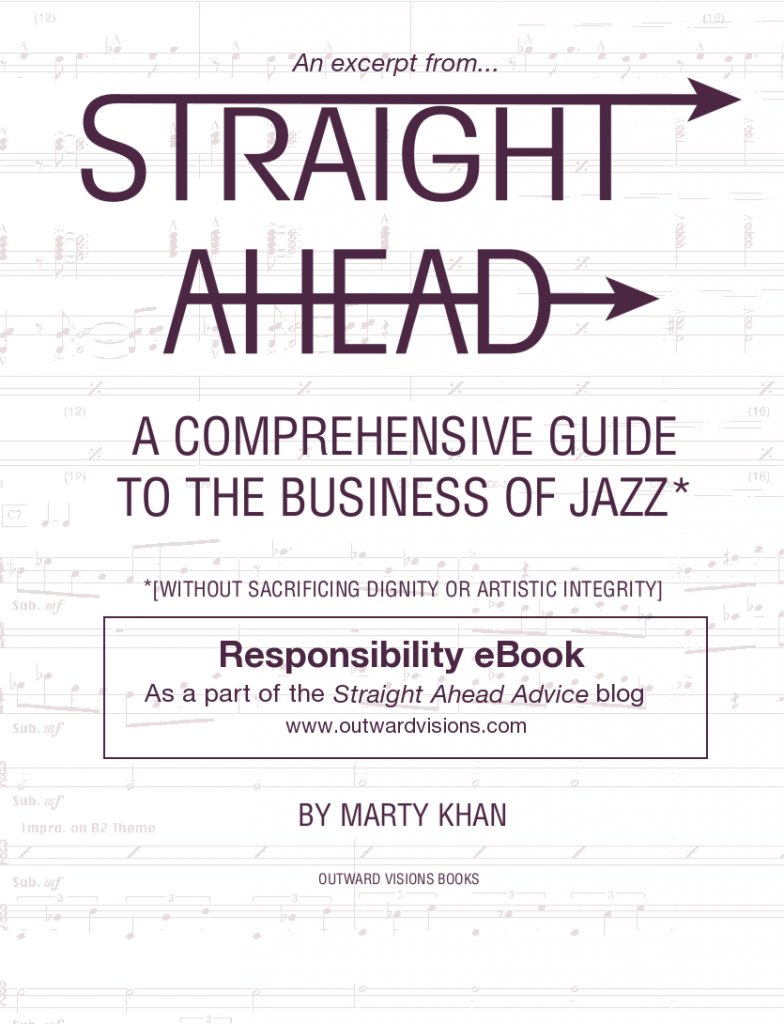“People can think that something’s happening when nothing’s going on; but they can’t think that nothing’s happening when something’s going on.”
– Sonny Fortune (1996)
My last two blog posts at Khanfrontation were about Commitment and Responsibility. You might think that I was writing about pain and starvation for all the reluctance that so many people seem to have to these two elements – essential for everything from high artistry to meaningful love. Neither of these sacred pursuits (and all other important ones) can be truly achieved without the intensive embrace of both substances. They need to be viewed in the same way that great food is a source of bodily nourishment.
In my 48 years of exposure to profound artistry, I’ve been powerfully blessed to have seen these forces at work at the highest level as both a recipient of them and a facilitator. On the latter tip, I’ve been privileged to have represented some of the most extraordinary messengers of profound Truth – and recognized as such by MacArthur Genius Awards, Kennedy Center Honors, The Pulitzer Prize and NEA Jazz Mastery. Unrecognized by all of those (and similar) honors, the man who I quote above stands equally tall. The day after he said that to me, he illustrated the concept of Responsibility in a manner that will remain prominent in my consciousness for as long as I have one.
We were driving uptown in the early hours of a Friday morning after two amazing sets by his quartet at Sweet Basil. As stunning as the music was, the audience reception was only mildly enthusiastic. Sonny just kept shaking his head and saying “I don’t know, man. I gotta figure this out.” I tried to explain it away in every way I could imagine – Thursday night; prices that discouraged the real fans; club-style distractions; etc. As we pulled in front of the post-gig all-night bagel joint, he uttered that quote, followed by “It’s on me. It’s my responsibility.”
A full day of practice and concentrated focus followed. That night’s music reached heights that simply surpass description. It remains one of the most profound experiences in a life that has been so blessedly full of them – and remains vividly etched in the forefront of my consciousness to this moment. The house went absolutely bonkers for all three sets. The jaded doorman said he’d never felt that kind of energy in a Jazz club in his 15 years on the job. I heard comparisons to Jimi Hendrix from at least four different people. The word Transcendent – also tossed about profusely that night – is simply too mundane to properly describe it.
From that night on the word Responsibility was no longer one of burden, but one of glorious expression.
We live in a time when arrogant indifference and lazy self-indulgence diminishes responsibility to a shrugged off sputter of “My bad.” Two words that have a cadence and attitude too much akin to other two syllable blurts like Who cares, So what, Up yours and Fuck you. To my mind, it’s a euphemism for the same message.
Responsibility is not something you put on like fine clothing to be worn on special occasions when we need to look our best. It’s a way of life, an expression of good intent, an understanding of what it is to accept the privilege of life among others. At its finest, it allows one to offer what Sonny Fortune bestowed upon a few hundred most fortunate (pun intended) beings that night – a blessing of love at its most profound level. Embracing responsibility as a way of life also demands understanding it in its widest angle perspective. There are so many layers of responsibility that must be perceived and recognized both to realize that which we must provide and that to which we are due. In business – where the lower substance of income production so easily clouds the essence of deeper pursuit – that is even more challenging. The great sports agent Bob Woolf once said something along these lines: “If I don’t take the needs of the team into account when representing my client, I can’t do right by either of them.”
We who represent artists are often despised for our perceived failures to care, understand, recognize, respect (and similar whatnot), the struggles and needs of the artist. And sometimes it’s justified. But it’s really essential for the artist to understand the multi-textured set of responsibilities of their agents and managers.
Straight Ahead… addresses issues of responsibility in dozens of places. Download the free eBook excerpt that explains a few of the artist/representatives’ responsibilities by clicking the image below:

If this piece interests you, please add your thoughts in a comment below and use the social network buttons to share it with your community. Marty Khan is the author of “Straight Ahead: A Comprehensive Guide To The Business of Jazz (Without Sacrificing Dignity or Artistic Integrity)” now available as an e-book.




2 Responses to Responsibility to the Highest Power